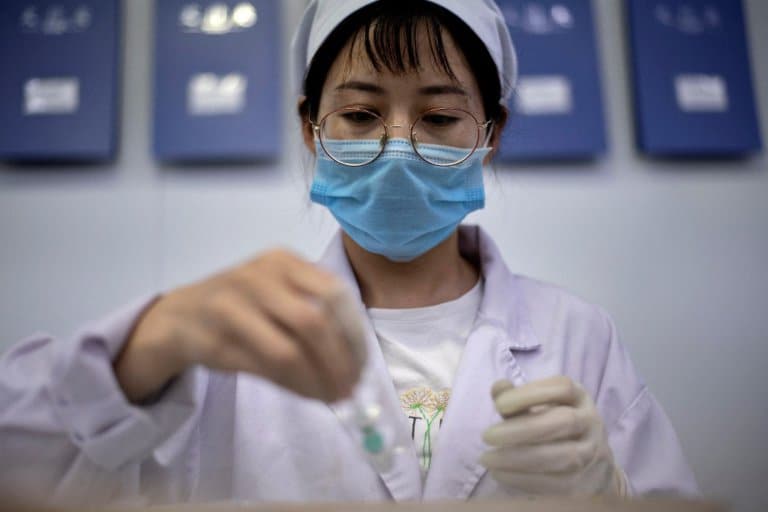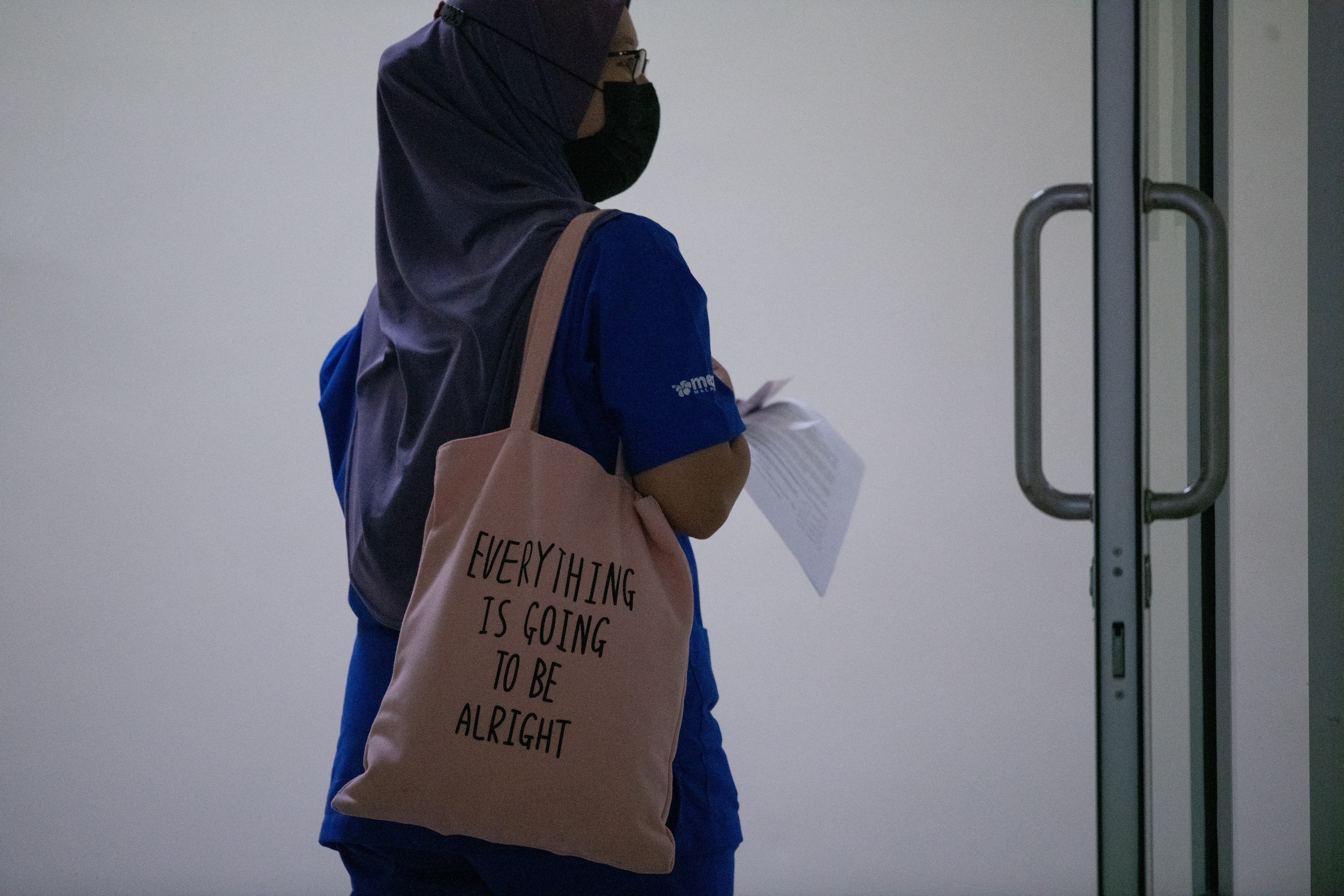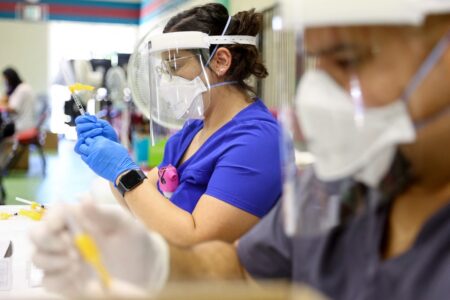
Many people want to be doctors, but not everyone has the financial capabilities to study medicine.
On average, pursuing a medical programme takes about six years, which is at least two to three years longer than a typical undergraduate degree. This also means you’re paying another two to three years of tuition.
Now, if you’re determined to go down this path while sparing your bank account, have a look at the cheapest countries to study medicine, especially those in Asia.
Take the National University of Singapore (NUS), for example. It’s one of the leading universities as well as medical schools on the continent — ranking first in Asia and #18 globally on the QS World University Rankings by Subject 2025.
The tuition fee for the five-year Bachelor of Medicine and Bachelor of Surgery (MBBS) programme is 73,550 Singapore dollars (US$56,909) for those from ASEAN and SG$83,950 (US$64,956). However, in the 2023/24 academic year, more than 90% of students received some form of financial aid.
Following behind NUS is the Chinese University of Hong Kong, which was also ranked #2 in Asia and #24 globally by QS World University Rankings by Subject in 2025. Here, the undergraduate medicine programme lasts for six years, and the total tuition fee is estimated to be around 1,068,000 Hong Kong dollars (US$137,743).
Whichever you choose, studying medicine in Asia is set to be cheaper than in the US or UK, which averages to US$267,000 in the US and US$250,332 in the UK — and with no compromise on quality too.

One of the cheapest countries to study medicine is China, where learning from some of the nation’s experts will lead to an MBBS degree that costs less than US$30,000. Source: AFP
Cheapest countries to study medicine: Asia edition
1. China
When the COVID-19 outbreak occurred in Wuhan, a hospital was built in 10 days, reported CNN. A little over a week after the land-levelling work commenced, the two-storey, 366,000-square-foot Huoshenshan Hospital started to accept its first patient.
Studying medicine in China is a chance to learn from the industry’s best. In April 2024, Chinese scientists reported a “world first” for a cell therapy cure in a diabetes case; two months later, another group of Chinese scientists created a tiny sensor the size of a sesame seed that could change the way patients with brain injuries or cancer are monitored.
- Fudan University‘s six-year English-taught MBBS programme totals around 450,000 yuan (US$62,352).
- Zhejiang University‘s six-year English-taught MBBS programme will cost an estimated 256,800 yuan (US$35,582).
- Wenzhou Medical University‘s six-year English-taught MBBS programme costs roughly 198,000 yuan (US$27,435).

The low cost of living and great programme offerings make Malaysia one of the best and cheapest countries to study medicine for international students. Source: AFP
2. Malaysia
Malaysia stands out as one of the most diverse countries in Asia, with a living cost as low as US$300 per month. Scroll through Reddit to hear from a Nigerian student who recalls how international students in Malaysia will have the luxury of observing how people from different races, religions, and cultures interact.
- Universiti Malaya‘s five-year undergraduate MBBS offers clinical experience, research opportunities, and elective placements. The tuition fee here costs 673,200 Malaysian ringgit (US$158,942)
- IMU University, Malaysia’s first private institution for medical and health sciences education, offers a five-year MBBS degree that totals around 672,500 ringgit (US$158,777).
Malaysia is also home to various branch campuses too, so you could even get your certification from another university abroad, like the UK or Australia.
- Newcastle University‘s five-year MBBS programme totals around 632,500 ringgit (US$149,333).
- Monash University‘s five-year Bachelor of Medical Science and Doctor of Medicine programme costs an estimated 674,400 ringgit (US$159,225).

According to the Health Care Index by the CEOWORLD magazine, Taiwan has the best healthcare system in the world in 2023. Source: AFP
3. Taiwan
One big reason that puts Taiwan on the list of the cheapest countries to study medicine is the availability of its various government scholarships.
These financial aid programmes are administered by several government bodies, including the Taiwan International Cooperation and Development Fund (TaiwanICDF), the Ministry of Foreign Affairs (MOFA), the Ministry of Education (MOE), and the Ministry of Science and Technology (MOST). Most provide subsidies for tuition fees and living expenses to awardees and allow eligible applicants to apply directly from their home country.
You might want to keep in mind that some of the universities here require some knowledge of the Chinese language.
- National Yangming Jiaotong University has a five-year Master of Medical Science programme that totals an estimated 2,302,800 New Taiwan dollars (US$76,170).
- China Medical University, Taiwan, has a six-year Doctor of Medicine programme that costs around NT$1,733,496 (US$57,339).
View this post on Instagram
4. Hong Kong
Hong Kong is a melting pot of cultures, mostly due to its Chinese roots and Western colonialism.
Here, innovation for healthcare doesn’t stop. With traditional Chinese medicine gaining international recognition, the special administrative region is taking steps to integrate it into its healthcare system beyond just acupuncture by preparing for the city’s first Chinese medicine hospital. Students here will witness the growth of this development, and they might even have a part in it too.
Beyond that, there are even talks between the Hong Kong University of Science and Technology with the UK’s Imperial College London to set up a third Hong Kong medical school, so keep an eye out for that.
- The University of Hong Kong‘s six-year MBBS programme totals around 1,308,000 Hong Kong dollars (US$168,633).
- Hong Kong Baptist University doesn’t have a traditional medicine programme, though it does offer a six-year Bachelor of Chinese Medicine and Bachelor of Science (Hons) in Biomedical Science, which costs roughly HK$267,000 (US$34,422) in total.
Disclaimer: This article was last updated on May 7, 2025.










